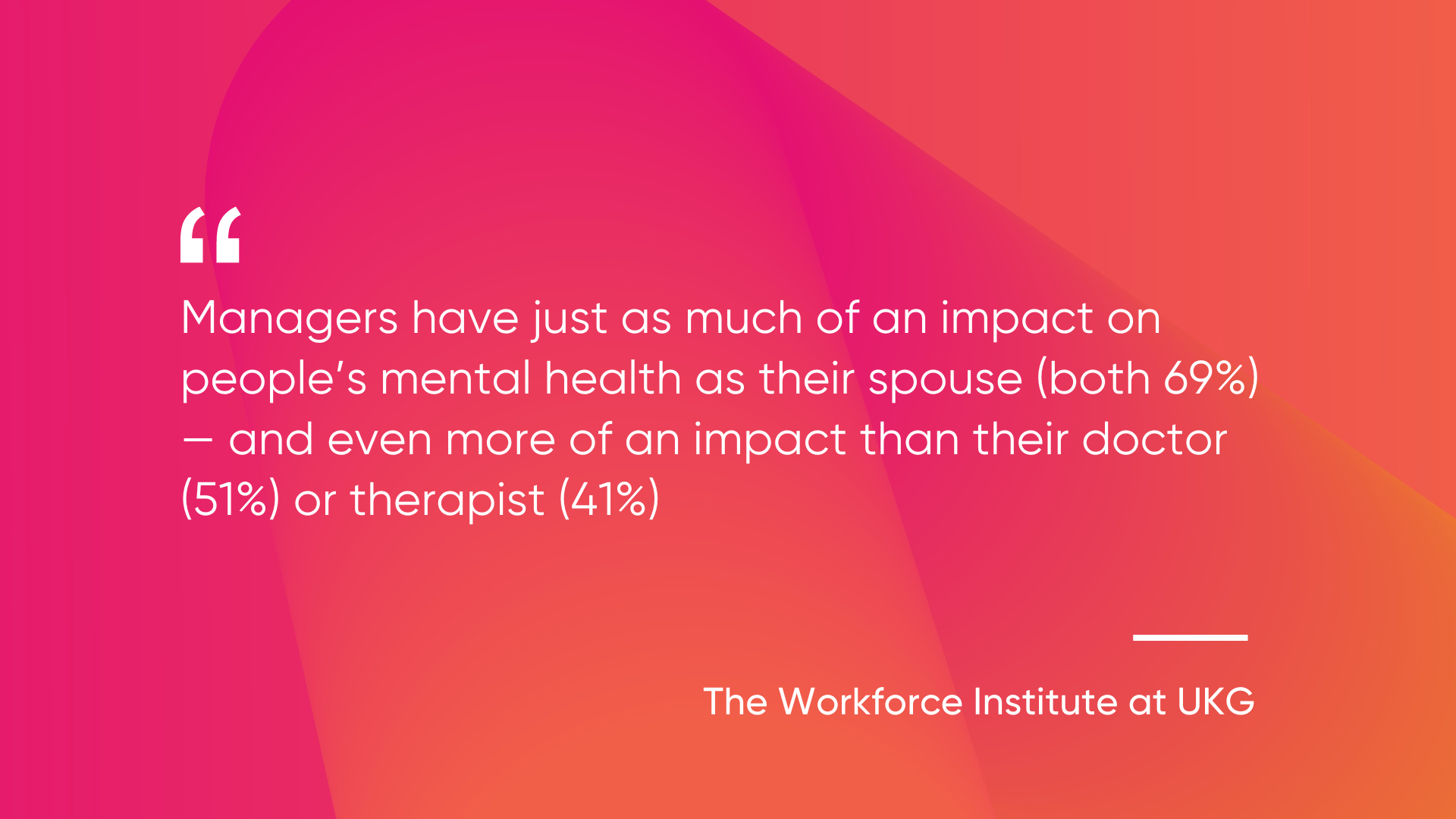Is good communication a dying art form? While it may be tempting to think that we can afford to be less skilled in this area and that advances in technology will compensate for any shortcomings, recent findings from LinkedIn’s Most In-Demand Skills 2024 report confirm that strong communication remains the top desired skill amongst candidates. At TSA Group, our business thrives on effective communication, whether it’s in leadership, engaging with team members, or in our calls and chats with customers. It shapes the way we connect, collaborate, and succeed.
Effective communication and employee wellbeing
Effective communication is more than the transmitting of information. It goes beyond addressing what audiences want or need to hear; it’s about understanding their working styles, concerns, and aspirations and adapting our communications to resonate with them.
Last year, The Workforce Institute conducted an extensive survey on workplace mental health. The findings revealed that managers impact mental health significantly, as much as one’s spouse or partner. When we delve into the core of each of the report’s suggestions for improving employee well-being, we find that effective communication lies at the heart of these strategies. Whether it’s about sharing information, acknowledging wants and needs, being transparent, or fostering openness, successful communication practices build stronger and healthier workforces.

The spectrum of communication
Before we can look into how we can improve our communication skills, it’s important to recognise the various ways in which we communicate:
- Oral communication: Talking effectively is more than just speaking; it’s about keeping your audience interested and clearly getting your point across. Verbal interactions play a crucial role in conveying emotions, building rapport, and fostering understanding among team members.
- Written communication: Your written messages should be well-organised and engaging to keep the reader’s attention. Clear and concise written communication is vital for transmitting information accurately, avoiding misunderstandings, and promoting efficient collaboration.
- Non-verbal communication: Your body language, facial expressions, and posture can say a lot without speaking a word. Understanding and using non-verbal cues effectively enhance the impact of your message and contribute to building positive relationships in the workplace.
By examining communication holistically and considering tone, language, and presentation, we ensure that our messages not only reach their destination but also make a meaningful impact. Additionally, active listening, a fundamental aspect of communication, fosters empathy, understanding, and open dialogue, creating a conducive environment for effective two-way communication.
Five tips for improving your communication
To turn effective communication into a daily practice, here are five tips that can make a significant difference:
- Consider your audience: Shaping your messages to address their “What’s in it for me?” and “Why should I care?” questions can significantly increase engagement and action.
- Emphasise accessibility: Given the diversity of teams, a one-size-fits-all approach to communication won’t work. Keep it simple and steer clear of jargon, making your message clear for everyone, no matter their level of expertise.
- Keep it concise: Respect your audience’s time by being direct. In written communications, like emails, use headings and bullet points to make the information easier to digest.
- Avoid information overload: Decide if all the information needs to be communicated at once. Delivering shorter, more frequent messages can build trust and help reinforce key points.
- Foster open dialogue: Encourage an environment where feedback and questions are not just welcomed but sought after. Use platforms that enable employee interaction, set aside time for Q&A in meetings, and provide options for anonymous feedback. It’s crucial to acknowledge and act on this feedback to demonstrate that you value and respond to others’ input.
The art of communication is far from obsolete; it’s a vital skill that underpins every aspect of workplace interaction and well-being. By honing our communication abilities, we create more inclusive, productive, and mentally healthy work environments.
TSA are Australia’s market leading specialists in CX Consultancy and Contact Centre Services. We are passionate about revolutionising the way brands connect with Australians. How? By combining our local expertise with the most sophisticated customer experience technology on earth, and delivering with an expert team of customer service consultants who know exactly how to help brands care for their customers.